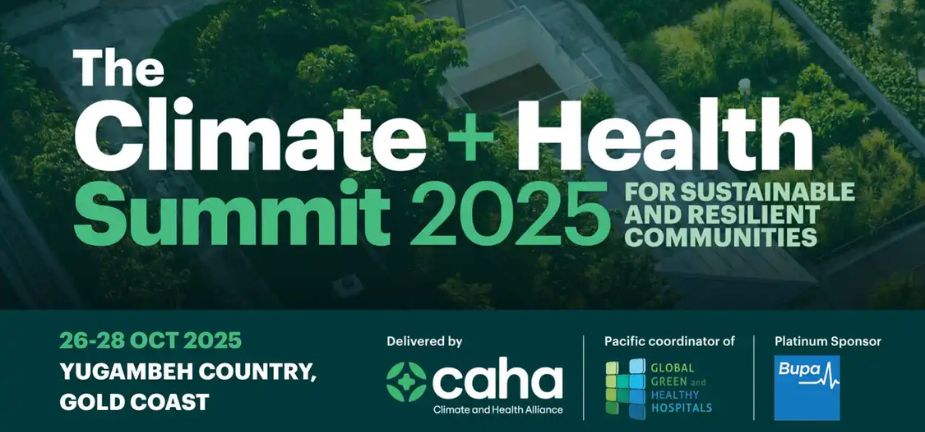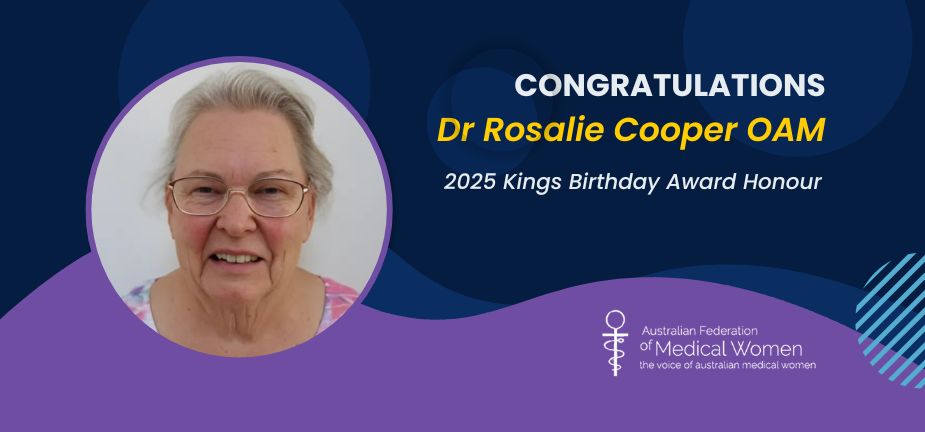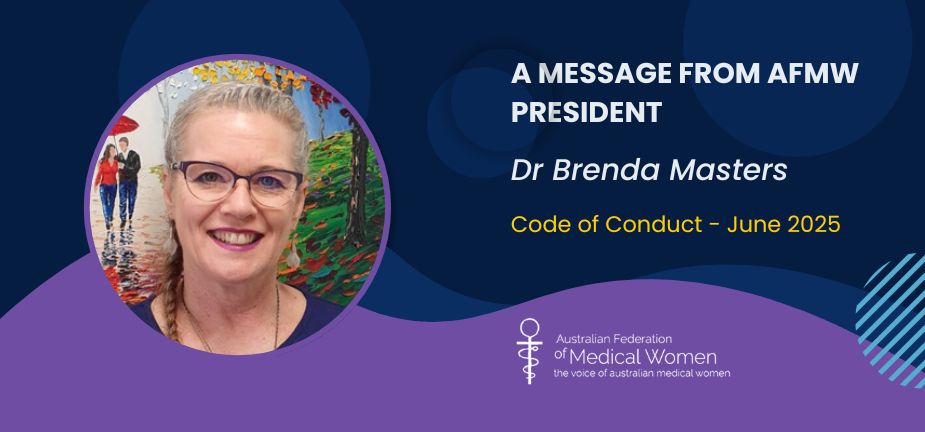4pm My friend Madhura and I arrive at the MCG and experience our first live AFL game. Susie Close is our gracious host. We are rapidly swept up in the exhilaration of the blue-and-white-clad crowd around us. It is a nail-biting game. The lead changes many times but, naturally, our team wins.
8pm After a quick dinner, we return to the convention centre for a free opening concert with the theme “We’re all connected”. We are treated to a laser spectacle and diverse displays of song and dance. The night ends late but the concert is well worth the price of admission.
Monday 30th Aug 2010
8am As part of a special programme of events for youth delegates, a free networking breakfast is provided each morning of the conference. I approach uninitiated into my first serious networking experience and am immediately overwhelmed by the sheer enthusiasm and familiarity with which these young people approach the issue of global health. One of the first people I meet is an inspiring young man who has worked with World Vision for 7 years since he was merely 16 years old. Although he later turned out to be an exceptional example, certainly many of the young people present at the breakfast are experienced in the art of activism. Another young man originally from the Republic of Congo delivers a rousing speech, calling the ten years since the development of the MDGs “ten years of quasi-inaction”. He uses his own home country as an example to show how closely these issues affect his life. “Reflect on yourself,” he pleads. “What can we do to make the world better?”
9.30am The opening ceremony begins with a delightful multicultural dance performance, followed by an aria from the world’s first indigenous opera. An official opening address is delivered via video by the UN Secretary-General, who highlights the importance of maternal and child health in achieving the MDGs. Barbara Flint-Nicholl, National Indigenous Health Advisor and indigenous health activist then takes the stage. She talks about how the customs of her people are often misunderstood and her people consequently vilified. For example, after childbirth, Aboriginal tradition holds that the placenta should be buried in native land. However, Australian medical staff often ignore the requests of indigenous families to retain their placentas. I was shocked – after six years of medical training in Australia, somehow this was the first time I had ever heard about this custom.
1pm Madhura, Laura and I watch some video presentations. We learn about the collaboration between IHAN and Lehman College. Another thought-provoking video is by the RAISE initiative, an organization catalysing changes in reproductive health care for refugees and internally displaced persons in emergency and crisis settings.
2.30pm The workshop sponsored by MWIA is entitled “Incorporating gender into health care and its effects on global health and achievement of the MDGs”. The moderator Dr Padmini Murthy distinguishes between sex (biologically determined) and gender (a social construct). She highlights the need to include men in the discussion.
Dr Gabrielle Casper then talks about gender and health. She recommends gender mainstreaming in all areas of healthcare, not just reproductive health. The 3rd Millennium Development Goal aims to “promote gender equality and empower women”. But is gender equality really what we should be aiming for? Dr Casper makes a distinction between equality and equity. Resources should be allocated on the basis of need – what is merely equal may not always be fair. She speaks about how often gender is ignored in disease and treatment research. The truth is that there are marked disparities in how diseases can affect men and women, and even how effective certain treatments may be. One size does not fit all. For example, in cardiovascular disease, rather than the typical crushing central chest pain, women are likely to experience nausea and vomiting, neck or back pain, and silent infarcts. Dr Casper wraps up by calling for further efforts to promote “gender competence” in both research and clinical practice.
Dr Jo Wainer is the next speaker with the topic is “Power, Gender and Health”. She emphatically states that “women should not die from their sexuality any more than men do”. Biology should not dictate destiny, but the current reality is that a woman dies every minute from preventable reproductive causes. Dr Wainer talks about the 3Ps that must be overcome: Power, Politics and Poverty. A major problem is the lack of a framework to implement methods to improve social determinants of health, which are then consistently ignored. To bring about change, she recommends “work[ing] like water” – revolutionary men and women have been noted to work subversively.
The final speaker is Dr Desiree Yap, who talks about relevance of this information to other NGOs, especially in the context of the MDGs. First, she focusses on MDG 5: gender issues clearly determine maternal mortality. The likelihood of a woman surviving pregnancy and childbirth depends not just on the availability of skilled medical staff, but arguably more heavily on social determinants of health, such as her nutritional state, whether she has serious infections, the priority of care given to pregnant women in her society, as well as how much her family and her husband perceive her to be of value. Other MDGs are affected by gender issues as well. The perceived value of girls and women in a society determines the equity of food distribution (MDG 1). In certain villages, girls spend so much time on menial tasks such as fetching water that they are not afforded the same standard of education as boys (MDG2). And, of course, MDG 3 aims to promote “gender equality”.
By this time, many people are eager to ask questions and have formed a long line. A selection of the issues discussed:
• Value children equally, regardless of gender
• With regard to the influence of religion and culture on gender issues, keep in mind the boundaries of what can and cannot be feasibly changed, and that it is possible to reread and re-interpret religious texts
• Women should take responsibility for educating and instilling the correct values in their children, as men respect their mothers
• Unpaid labour such as breastfeeding is difficult to measure and thus often undervalued
• Get men involved and engaged
• Look after men’s and women’s health holistically, not just their reproductive organs
4.30pm Roundtable 1 “The role of the NGOs and Civil Society in helping achieve the MDGs” begins, but the IHAN delegation (including Eloise and I) are busy planning the workshop for the next morning.
6.00pm The AFMW delegates gather once more and proceed by tram to Brunswick, where a Greek-style eat-a-thon ensues.
Tuesday 31 August 2010
9.30am Roundtable 2 is held, on the topic “Equity, rights and progress towards the MDGs”. The panel start off by discussing the process of data collection and its role in achieving the MDGs. Data should be all-inclusive, preferably collected by trained members of local communities and the results channelled by those same communities into planning for workable projects. Unfortunately, the reality is that much of the data currently collected is overly medical in nature, misses certain disadvantaged groups and is only collected to justify funding, without being used for any other purpose.
Again sexual and reproductive rights for women are highlighted as the key to improving maternal health as well as decreasing infant mortality and violence against women – no doubt true, but as we have learned from the workshop the day before, women’s health is really a much broader issue covering all aspects of health and wellbeing.
Interestingly one panellist is clearly sceptical of the benefits of the MDGs and the ability of the world to achieve them by 2015. “Achieving the MDGs will only modestly advance global health, if at all,” he says. “The MDGs display an overemphasis on technology and a lack of longterm commitment. They are inattentive to inequalities – national averages hide the poor in each country. The MDGs encourage quick fixes, average outcomes and human rights violations.” He concludes by suggesting that today’s youth be educated to become “activists, not engineers”, and by calling for quantified obligations from the rich: “disparity reduction, not just poverty reduction”.
11.30am The workshop sponsored by IHAN is entitled “Intergenerational Dialogue on Global Health from Birth to Maturity”, with Dr Sorosh Roshan acting as moderator. The first speaker is Dr Suad Al-Dasouqi, who speaks about how to use complementary and alternative medicine to achieve greater longlasting health, delay ageing, and, in effect “stay young longer”. The second speaker, Yunsook Lee, former Minister of Public Affairs from the republic of Korea talks about how to reinvigorate senior citizens (especially women, who in Korea outlive men by 9 years) as a strong political force. “Ages 60-70 are the young old, 70-80 the medium old and 80 up are the regular old,” she quips.
Dr Gabrielle Casper has divided her talk, which focuses on great steps forward for gynecology over the generations, into several parts, some of which are to be delivered by students. First, Eloise talks about contraception through the ages and the oral contraceptive pill in particular. Next, Victoria, another medical student, outlines how the HPV vaccine will revolutionize cervical cancer prevention into the future. Dr Casper herself then talks about menorrhagia treatments, which due to advances in technology have improved significantly over the last generation.
Steffie Kinglake then takes the podium to sum up the proceedings and construct some overarching themes. I wrap up by presenting our draft resolution, which reads “Increased public health awareness and a call to action towards the implementation of gender-competent practices in government budgets and decision-making are necessary for women to access the most appropriate healthcare available and to improve overall global health”.
Again there are many questions. Some discussion points are:
• The approach to HPV vaccination should be similar to the approach used for rubella in pregnancy- timing of administration of the vaccine should be disconnected from sexual activity, to increase community acceptance
• The best way to improve women’s health in small communities is to identify, mentor and train not just women, but both women and men who are committed to the cause. Outside in is unacceptable, change must be from the inside out, with culturally appropriate solutions of a community’s own devising
• Peace is vital to achieving the MDGs. Wellbeing of citizens becomes secondary if the government is in disarray or the country at war. Peace and harmony is needed, and government budgets should focus on global health instead
• Educate a boy and you educate an individual. Educate a girl and you educate the whole community
2.30pm The afternoon workshop I attend is sponsored by Hadassah, the Women’s Zionist Organization of America, with the title “Sharing Best Practice to Advance Global Health”. The first speaker gives a short speech with a simple message – technology transfer should happen in conjunction with transfer of technology practice – i.e. training in protocols for the operation of said technology- in order to effectively advance global health.
The next speaker talks about her research, the topic of which is PTSD in children who have suffered natural and manmade trauma (natural disasters and war respectively). Her conclusions: empower professionals, strengthen the container (i.e. family) and prevention is key – especially in the case of manmade trauma. She emphasizes the importance of psychiatric disorders in the global burden of disease (a massive 14% of all disease, and 28% of non-communicable disease, which is more than cancer and cardiovascular disease) and calls for a specific focus on women in the global mental health strategy – the difference here is that women are affected by a different spectrum of neuropsychiatric disease, are more often medicated and have an increased burden of care if tasked with looking after affected relatives.
The final speaker promotes male circumcision as an additional mechanism to existing measures (condoms, abstinence) in minimizing the spread of HIV.
4.30pm The 3rd roundtable begins – “Strengthening an integrated and systems approach to achieving the health MDGs”. The discussion is a little difficult to understand, but some points raised are:
• Should private sector companies be invited into the dialogue on achieving the MDGs?
• The only solution appears to be to build effective health systems for all countries
• The GFC has impacted the West’s determination to achieve the MDGs
• Climate change and the MDGs are interlinked
• Governments should be held accountable by NGOs in order to achieve the MDGs
6.30pm A networking dinner is held at the Melbourne Aquarium – there can be no more surreal experience than dining on seafood while being circled by various species of fish, including several sharks…
Wednesday 1 September 2010
7.30am Youth breakfast in the morning. Today each table is prompted to have a talk on how best each of our organizations can further the goal of achieving the MDGs by 2015. My table laments the lack of media coverage on the largest UN conference ever held in Melbourne – probably in part attributable to the lack of a definite prime minister. “There simply isn’t enough bandwidth in the media right now,” says one of the girls, and we all agree. We decide that the most important thing is to raise awareness. We talk briefly about the Make Poverty History campaign, which successfully harnessed celebrity star power to further their cause. One of the people at our table participated in founding the 40-hr Famine, which has also been highly successful due to extensive media promotion. Unfortunately time runs out before any solutions come to the fore – but at least we have identified one of the main problems. At the conclusion of the last youth breakfast, the girl guide delegation sings a song about the MDGs which they teach to 5-8 year olds – “MDG One, feed everyone; MDG Two, teach me and you…”
9.30am Roundtable 4 – “Achieving the MDGs in our Changing World” is held. The panellists discuss important changing features in our world – population growth and ageing, climate change, the media and war. In the discussion that follows, some points/issues raised are:
• There is a disconnect between researchers and activists, a gap which needs to be bridged
• Think globally, act locally
• Renewable energy as a solution to combat rising oil prices and potential food shortages
• Promotion of a culture of peace – discouraging war spending. Especially in education of youth, should have less of a focus on war, which is a negative achievement of humanity
• Tim Costello makes an impassioned plea for the sake of the people affected by the floods in Pakistan – which is greeted with a standing ovation
After the roundtable, the conference resolutions are read and passed. Some of the wording could be better refined, but we are urged not to let the perfect stand in the way of the good…
11.30am The workshop I attend is sponsored by the Canadian HIV/AIDS Legal Network – “Drug injection and HIV/AIDS: what needs to be done to reach Goal 6?” I learn that 15.9 million people globally are injecting drugs users , with 3/4s of these people residing in Russia, China and US alone. IVDU accounts for many HIV epidemics outside of sub-Saharan Africa. In the context of Australia, Indigenous people are especially at risk as there is both an increased prevalence of IVDU and a decreased access to healthcare. Gender power differentials are also at play, with indigenous women who suffer IVDU being disempowered and more prone to sexual abuse.
A civil society advocate for IVDU speaks about how they are regularly marginalized and excluded from decision making. I am horrified to learn of what passes for drug rehab in some countries – imprisonment within tiny wooden cages, brutality, humiliation, even the death penalty.
2.30pm The workshop I attend in the afternoon is sponsored by the International Association for Human Values – “Advancing Women’s Health, Empowerment and Resilience: Case Studies and Succesful Tools for Achieving the MDGs”. The first speaker goes into detail about a women’s empowerment project in Iraq, focussing on internal (perhaps psychological?) empowerment through wholly transferably meditation and breathing techniques. This should then translate into external empowerment (dependent on the skills, situation and available resources). A similar programme in Africa is outlined by the second speaker. Internal empowerment, she says, allows women to effectively weather psychological trauma and be more able to take up leadership positions afterwards. Very unexpectedly the session concludes with a live demonstration of some of the aforementioned breathing techniques!
4.30pm The closing ceremony is held in the plenary hall. The proceedings (involving another dance and muscial performance) run overtime, making us late for…
7+pm …A talk by Dr Padmini Murthy at the Lyceum on her work with the UN as the MWIA’s UN Co-representative and how she first became inspired to do something about women’s health. Eleanor Nwadinobi of the Widows Development Organisation also talks about her work in Nigeria – how widows used to be tortured in her village upon the death of their husbands and how she, alone of her peers, stood bravely against this despicable practice and has worked successfully to change it.
Thursday 2 September 2010
7pm SNAICC is hosting a post-conference dinner for delegates to discuss recent projects and partnerships with other NGOs – Madhura and I are offered the opportunity to attend, which we both jump at. We learn about the Two Bays project (a unique partnership with Pelican Expeditions) and the Ngapartji Ngapartiji project, learn some tips about what makes a successful partnership, and fail miserably at trivia. It is a wholly enjoyable experience.









